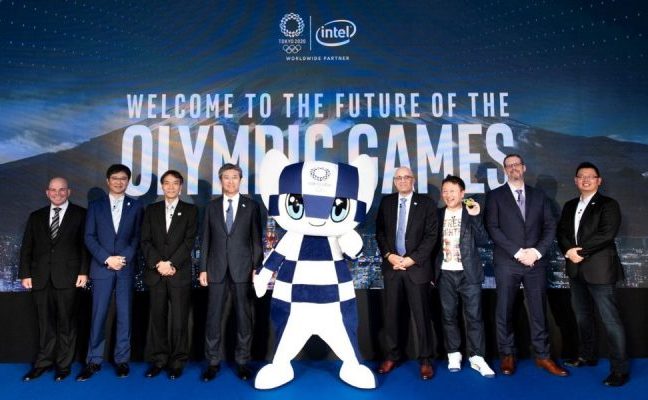In Collaboration with Partners, Intel will Bring World-Class Technology and Experiences to Olympic Fans around the Globe
TOKYO, Sept. 11, 2019 — Today, Intel announced that it is partnering with the International Olympic Committee (IOC), the Tokyo Organizing Committee of the Olympic Games (Tokyo 2020) and a broad array of partners to drive the future of the Olympic Games Tokyo 2020 with groundbreaking technology. Intel’s successful collaboration with the PyeongChang 2018 Olympic Games has fueled its drive to raise the bar again in 2020 for how technology will innovate the Olympics.
The Olympic Games provides an opportunity for Intel, as a technology leader, to demonstrate core technologies that enable innovative new experiences for athletes, Games attendees and Olympic fans around the world, leverage the power of computing and accelerate the impact of connection.

From innovations that draw on 5G platforms to artificial intelligence (AI) solutions to immersive media to esports, Intel will showcase technology in three focus areas at the Olympic Games Tokyo 2020: Compute, Connect and Experience.
Compute: Intel is connecting fans and athletes like never before, and enabling new Olympic experiences with technologies involving 3D Athlete Tracking (3DAT) and utilizing the power of virtual reality (VR) to train venue managers.
3DAT: 3D Athlete Tracking is a first-of-its-kind computer vision solution using artificial intelligence to enhance the viewing experience for Olympic fans with near real-time insights and overlay visualizations during athletic events. Developed by Intel and hosted on Intel-based data centers in Alibaba’s cloud infrastructure, 3DAT, in partnership with Olympic Broadcast Services (OBS), uses four pan-tilt mounted, highly mobile cameras to capture the form and motion of athletes, then apply pose estimation algorithms, optimized for Intel® Xeon® processors, to analyze the biomechanics of athletes’ movements. The system transforms that data into broadcast overlay visualizations available during replays of the 100M and other sprinting events.
VR Training: The IOC and Intel are collaborating to define and implement solutions that combine the experience of the IOC and the technical expertise of TOP partner Intel to support the organizing committee becoming operationally ready. VR training will be utilized to create an immersive learning experience for key managers at competition venues. Intel’s VR training system improves training effectiveness with a more realistic experience for those learning with more accurate/objective feedback. Powered by Intel Xeon and Intel® Core™ processors, VR can lower costs and increase training efficiency. The training will also include building digital versions sometimes known as “digital twinning” that can open several opportunities to unleash the power of data for training, planning, simulation and more.
“After a very successful PyeongChang 2018, we’re excited to partner with Intel once again to bring the next era of technology to Olympic Games Tokyo 2020,” said Timo Lumme, managing director of the IOC Television and Marketing Services. “Our extended collaboration with Intel allows us to provide the best experiences and technology to all Olympic fans who attend our events and those viewing in from around the world.”



















